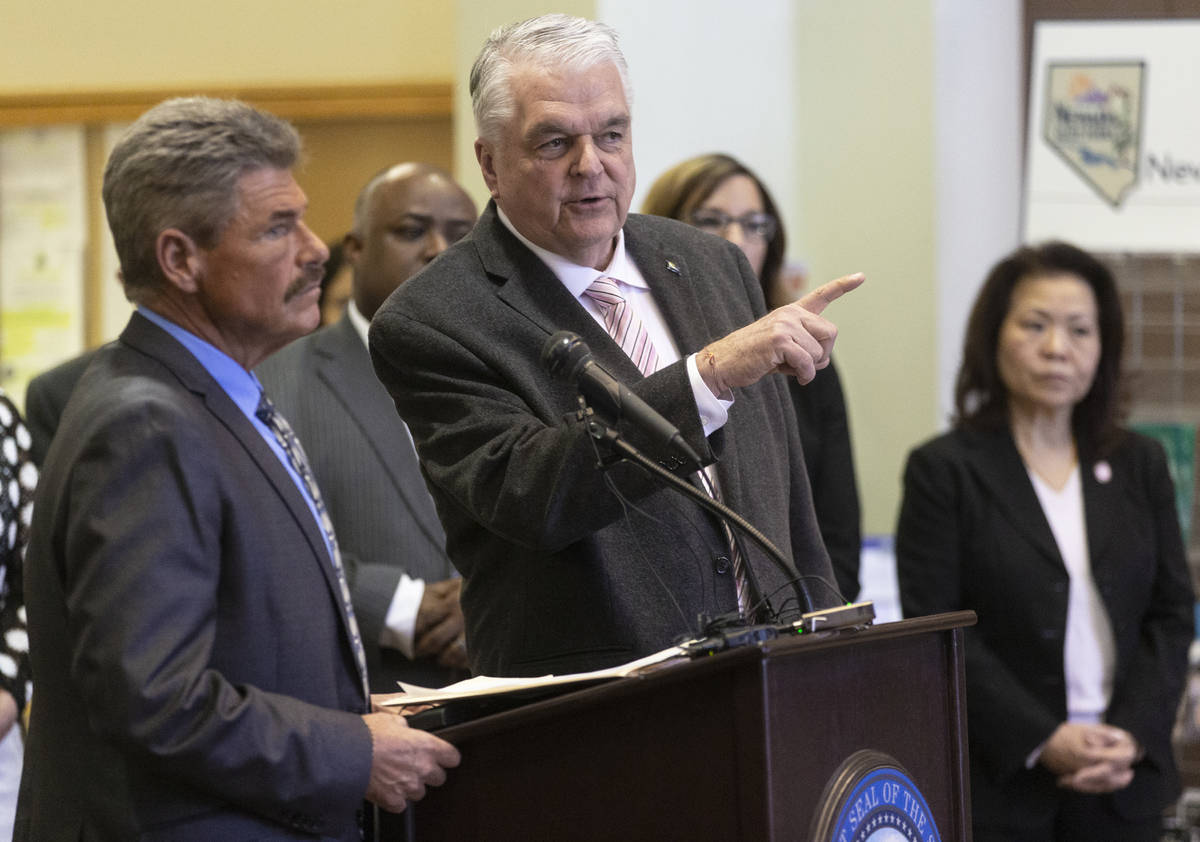State gets millions in coronavirus relief funds
CARSON CITY — Lawmakers on Thursday accepted millions in federal relief funds as part of the state’s continued fight against the coronavirus in Nevada, while also getting more information about the impact the first set of budget cuts will have on services vulnerable Nevadans rely on.
The state’s plan to deal with the $812 million budget hole for this fiscal year, which ends on June 30, involves cuts to state agencies and to one-time program appropriations totalling about $88 million in savings, which lawmakers approved Thursday.
Assemblywoman Teresa Benitez-Thompson, D-Reno, asked Department of Health and Human Services Director Richard Whitley how those cuts would affect his ability to serve some Nevadans, such as those who get help from the state’s Autism Treatment Assistance Program, which is being cut by $4.8 million.
Whitley said despite the cuts, he will still be able to serve the 890 Nevadans in the program, at least in the short term. (There are an addition 31 people on a waiting list.) Whitley said that’s in part because federal relief act dollars from the CARES Act have helped offset some of the lost funds, while some of the families in the program are not using it currently because they don’t want to risk the potential spread of the coronavirus.
But Whitley said the CARES Act funds will only hold the department over for the current fiscal year, and added it will be more difficult to avoid harming those services in the new fiscal year.
Lawmakers also accepted federal relief dollars for various programs in its response to the pandemic.
The state will use $48.3 million in funds from FEMA to procure testing supplies for the virus as well as additional personal protective equipment for the state National Guard. An additional $2.5 million from the CARES Act will also go towards funding for the activated guard members.
Another $29.4 million from the CARES Act was approved to boost funding to provide meals for K-12 students, including through the summer.
And lawmakers approved $11.4 million from the CARES Act for the Department of Education’s Elementary and Secondary Schools Emergency Relief account.
That money will be used to support professional development for teachers, “high quality instructional materials,” and for technology costs.
The Clark County School District unveiled a plan that would split students into two cohorts, with Cohort A taking in-person classes Mondays and Tuesdays and Cohort B taking classes on Thursdays and Fridays, while also offering an option for students to do distance learning full time.
But Assemblywoman Dina Neal, D-North Las Vegas, said for the schools in her high-poverty district, a significant number lack home access to the internet, making distance learning difficult.
State Superintendent Jhone Ebert said during the meeting that they are working to have a meeting with internet providers about roadblocks to access for families.
“This pandemic has clearly exposed the inequities that exist, whether it is access to a device or the internet itself,” Ebert said.
Contact Capital Bureau Chief Colton Lochhead at clochhead@reviewjournal.com. Follow @ColtonLochhead on Twitter.






























